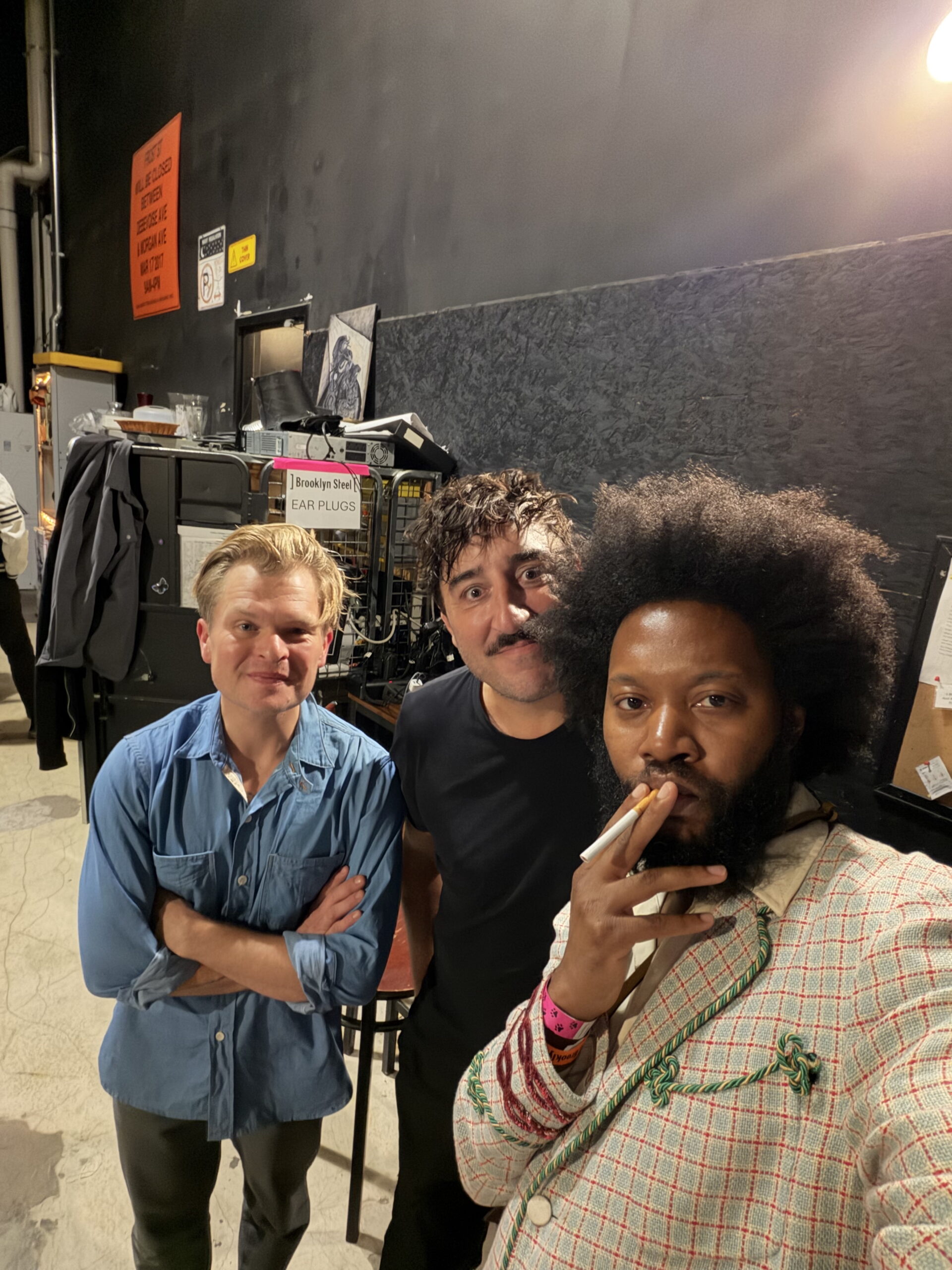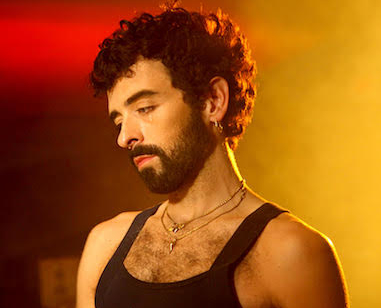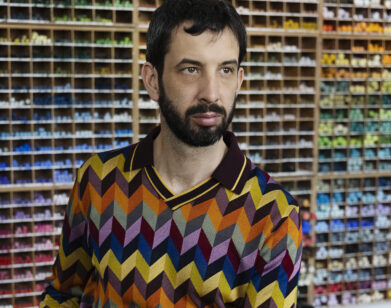SMOKE BREAK
“What Even Is This City Now?”: Backstage at Grizzly Bear’s Brooklyn Reunion
FRIDAY 10:44 PM OCTOBER 18, 2025 WILLIAMSBURG
With the announcement that, for its 30th anniversary, Pitchfork will now allow readers to score albums themselves, it’s become clear that the last great bastion has finally fallen. Poptimism had changed it in many ways, as had a general shift in the sonic landscape, but the venerated music review website that shaped the tastes of a generation would always feel powerful as long as their coveted numerical system was never challenged. Now, it has been, just as one its greatest children, Grizzly Bear, has returned to the stage to the delight of millennials everywhere. The castle might be crumbling, but its subjects and the stars of its court are still here reflecting on what was and looking towards the future.
My relationship with Grizzly Bear is long. I remember the first time a friend played me the song “Fix It” and I called it “white excellence.” In many ways, GB taught me how to listen to and appreciate white boys with guitars and drums. Having grown up in the south in a household of R&B, gospel, and soul, there was always something incredibly flat about the music the indie rock white boys made until the choral experimentations and sonic interludes of these boys recalibrated something in me. After their Brooklyn Steel show, I joined with Chris Taylor and Ed Droste (now an old friend) to talk about what it means to be back making the kind of music I can only call white excellence.
———
JEREMY O. HARRIS: Guys, we just ended the fucking Brooklyn Steel Grizzly Bear show. How do you feel?
ED DROSTE: Good! They were rowdy. I don’t know what they were saying.
HARRIS: I yelled out to you guys.
DROSTE: It was you the whole time?
HARRIS: No. I yelled out once at the end. I wanted to hear “Fix It.”
DROSTE: Oh, that was you?
HARRIS: You want to know why I wanted to hear “Fix It”?
CHRIS TAYLOR: Why?
HARRIS: You don’t remember? He doesn’t remember this.
DROSTE: [Laughs]
HARRIS: I lost my virginity to “Fix It.”
TAYLOR: Oh shit!
DROSTE: I don’t remember this, but I’m sure you told me.
HARRIS: What does it mean to be back on the road?
DROSTE: It’s really fun, but it’s really surreal.
TAYLOR: It’s been surreal.
DROSTE: It’s been like, seven-plus years and we haven’t really seen that much of each other. And then suddenly we’re jumping back into it.
TAYLOR: It weirdly feels really familiar though at the same time. It’s very cool. It’s definitely like a dream, like a familiar dream.
DROSTE: It’s fun. It’s like getting to know each other again.
HARRIS: I had this weird realization while I was watching you guys on stage because I thought about the fact that your birthday is in a couple of days and you’re a Libra.
DROSTE: I’m a Libra. I’m a cusp.
HARRIS: What are the other signs in this band?
TAYLOR: We have a Leo, a Virgo, a Cancer, and a Libra.
HARRIS: So you guys have all four elements.
TAYLOR: Do you think so?
HARRIS: I don’t think so. [Laughs] That is a fact.
TAYLOR: I never thought of that.
DROSTE: Is that good or bad?
TAYLOR: It’s a balance.
HARRIS: You guys are completely balanced.
TAYLOR: Whoaaaa.
HARRIS: That means this band is really cosmically perfect.
TAYLOR: Dang. That is really surprising. Good work there, sleuth.
HARRIS: Do you think that means something?
TAYLOR: Yeah, yeah. I feel like everyone definitely has a very distinctively different personality for sure. None of us feel like we come from the same cloth.
HARRIS: I think that’s why the music has such a distinctive quality to it. I was just sitting there in awe of you guys because, also, you know I’m a millennial. This was like the soundtrack to my early adulthood. And for an entire generation of millennials who were Pitchfork-obsessed, you guys were the soundtrack. What does it feel like to meet those people now that they have kids and real jobs and are in an entirely different political landscape than when you guys began?
DROSTE: It feels great. I mean, it’s super nostalgic for us as well. None of us have lived here for a while. So being back is disorienting. It’s so different and there’s this weird sort of push and pull. I miss something that doesn’t exist anymore and it’s this odd type of melancholy but not in a bad way, per se. Just what I remember isn’t this anymore. I’m here and I’m just like, “What even is this city now?” It’s more expensive. [Laughs]
HARRIS: [Laughs] Much more expensive. I was thinking about the fact that teens can’t get wasted at a bottomless mimosa place anymore.
DROSTE: No.
HARRIS: Like, I used to get drunk at a bottomless mimosa for 15 dollars.
DROSTE: How much is it now? 70?
HARRIS: It’s like 80 dollars to get drunk on a Wednesday.
TAYLOR: [Laughs]
DROSTE: [Laughs]
HARRIS: You guys are jazz band people, right? Tell me about your inspirations.
TAYLOR: We’re jazz people at large, yeah, we were in a jazz band as well as other things.
DROSTE: I was influenced by Liz Phair. I was like, very 90’s alt, liike Jeff Buckley.
TAYLOR: D’angelo was really huge for me, definitely singing-wise.
HARRIS: Well, there is a freedom in your musicality, in your orchestrations, that is obviously indebted to jazz. I think so many of your choral traditions just really excite me because they remind me of the choral traditions I would witness when I would go to choir practice.
DROSTE: I think I was sort of influenced by Benjamin Britten through my family. Not necessarily like I was in college listening to Benjamin Britten, but my parents played me so much choral music growing up. My bandmates probably heard about them a ton too. But I didn’t realize until later, like when I rediscovered “A Ceremony of Carols” and a bunch of other things too, like Randall Thompson as well. So it’s sort of surreal to figure out, “Oh, I’m like, oddly inspired by this thing that I was consuming as a child without really realizing.”
HARRIS: I’m really feeling the excitement in this room around seeing people play instruments live having this rare camaraderie.
TAYLOR: Yeah. There’s like a familiarity to it that is deeply comforting in the sense that we spent so much of our lives doing this and then we just took such a distinctive break from it for 7 years. And then in the meantime, the last 7 years have been insane. So just coming back to something that is familiar feels really nice. I feel like it’s growing each night as we are getting more used to what we are doing and to our songs and learning them. It’s starting to come together in the way that it used to.
HARRIS: How much freedom do you guys have with the setlist every night? I looked it up before and it didn’t match the one that I heard tonight.
DROSTE: For the first time we are trying to mix up the setlist more than ever. Normally, we switch up one or two songs.
TAYLOR: We tried to learn 37 songs like two weeks ago. So it was like, a really tall order to try and change out the sets a bit for the people. I don’t know how many of those 37 we—
DROSTE: Like 31 or 32. [Laughs]
TAYLOR: Some are still in the works.
HARRIS: Well, my cigarette is almost done. I have to ask you if we get another Grizzly Bear album after this tour…
DROSTE: Never say never. But there’s nothing in the works right now.
HARRIS: Are you guys writing on the bus?
DROSTE: We’re not on a bus. [Laughs]
TAYLOR: We are not on a bus.
DROSTE: We’re just doing spot shows. This is a very limited run.
HARRIS: Listen, I would be remiss as a fan if I didn’t tell you that I need another album.
DROSTE: Well, never say never. The vibes are good. We’re planning shows together and seeing each other again. Who knows? I don’t know. Maybe…
TAYLOR: I have been producing bands. I did 5 LPs last year, and I just finished a solo EP which is coming out in a few weeks of my own music. For the first time in like 13 years or something, It’s just Chris Taylor. So I’ve just been making a lot of music and trying to learn new stuff, new tricks. There’s new stuff coming.
HARRIS: I can’t wait.
TAYLOR: You don’t have to.







